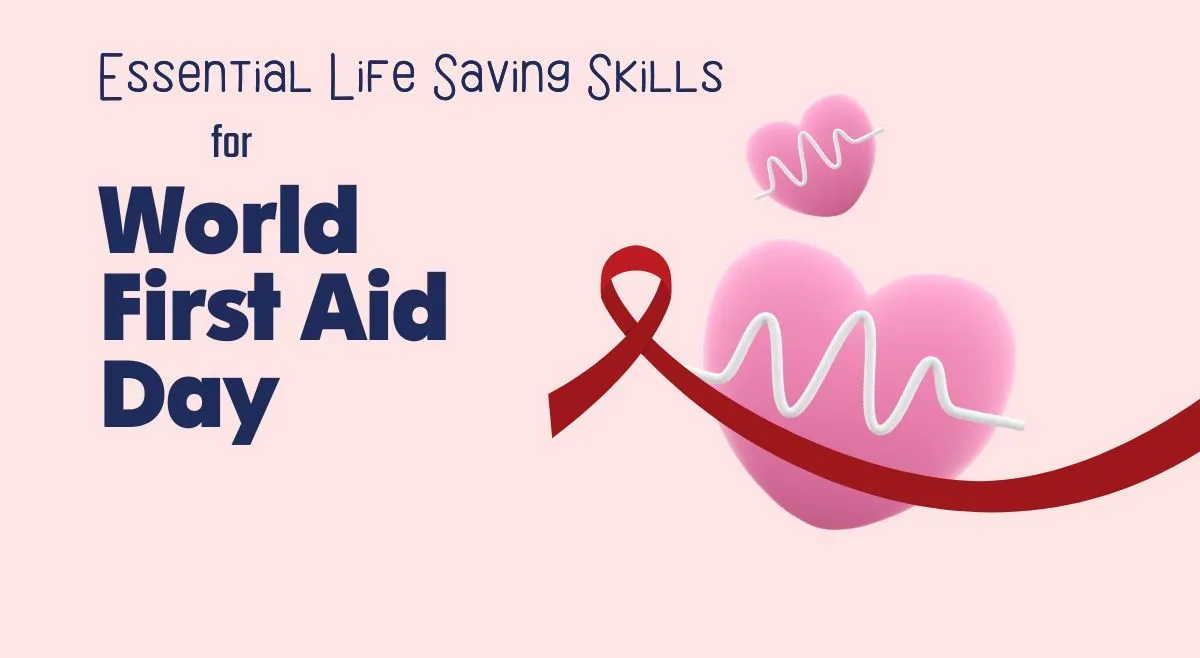- By Ridam Sharma
- Sat, 13 Sep 2025 12:22 PM (IST)
- Source:JND
Essential Life Saving Skills: Emergencies can happen at any moment, anywhere, at home, in the workplace, or in public spaces. Knowing these lifesaving skills gives you the capability to respond quickly and confidently during such moments of need, like accidents or any health emergencies. Learning basic life-saving skills like CPR and knowing how to stop bleeding can go a long way. They actually make a difference between life and death, and provide instant aid until professional medical attention reaches the victim. Therefore, here is a list of more than essential life-saving skills that you must learn, according to WorldFirstDay.org.
30+ Essential Life Saving Skills Everyone Needs To Know:
1. Cardiopulmonary Resuscitation (CPR)
2. Use of Automated External Defibrillator (AED)
- CPR and AED use can double or triple survival chances for sudden cardiac arrest.
3. Placing someone in the recovery position
- Placing unconscious but breathing patients in the recovery position keeps their airway open.
4. Choking relief (Heimlich manoeuvre, back blows)
- Choking relief must be applied immediately for blocked airways.
5. Controlling severe bleeding (pressure, bandaging)
- Controlling severe bleeding with pressure helps prevent life-threatening shock.
6. Treating burns (cool, cover, no creams)
- Treat burns with cool running water and cover with a clean dressing.
7. Handling fractures and immobilisation
- Immobilise fractures to avoid further injury.
8. Rescue breathing/mouth-to-mouth
9. Recognising stroke symptoms (FAST)
- FAST symptoms for stroke—Face droops, Arm drops, Speech slurs, Time to call for help.
10. Treating shock and keeping victims warm
11. Asthma emergency care (inhaler use)
- Asthma and allergy emergencies demand quick intervention: inhalers or epinephrine.
12. Allergy emergency (epinephrine auto-injector)
13. Basic wound cleaning and dressing
14. Responding to hypothermia
Also Read: Asthma First Aid: 6 Things Everyone Should Know According To A Doctor
15. Responding to heat stroke/sunstroke
16. Seizure first aid
17. Poisoning first aid (do not induce vomiting)
18. Treating nosebleeds
19. Handling fainting
20. Managing drowning emergencies
21. Treating bites and stings
- Treat poisoning, drowning, heat/cold stress, bites, stings, and electrical shock promptly.
22. Safe transport of injured persons
23. Splinting for sprains or fractures
24. Emergency childbirth basics
25. Diabetic emergency identification and response
26. Treating eye injuries safely
27. First aid for electrical shock
28. Spinal injury precautions and stabilisation
29. Recognising heart attack signs
30. Building and maintaining a first aid kit
- Maintain a ready first aid kit and know your emergency contact numbers.
Also Read: Emergency First-Aid For Heat Stroke: What You Should And Shouldn’t Do? Know From Doctor
31. Checking responsiveness and breathing
32. Calling for emergency help efficiently
33. Knowing emergency phone numbers
The above-mentioned skills are crucial for making quick, effective responses during emergencies and have led to saving lives anywhere, at home, work, or in public places. Learning life-saving skills is a responsibility and not just about being ready for casualties. Being capable enough to respond to casualties creates a safer world for everyone around. Spreading awareness about the day is also crucial. Through learning these fundamental skills, anyone can make the difference that keeps tragedy away and saves lives in a moment of need.
